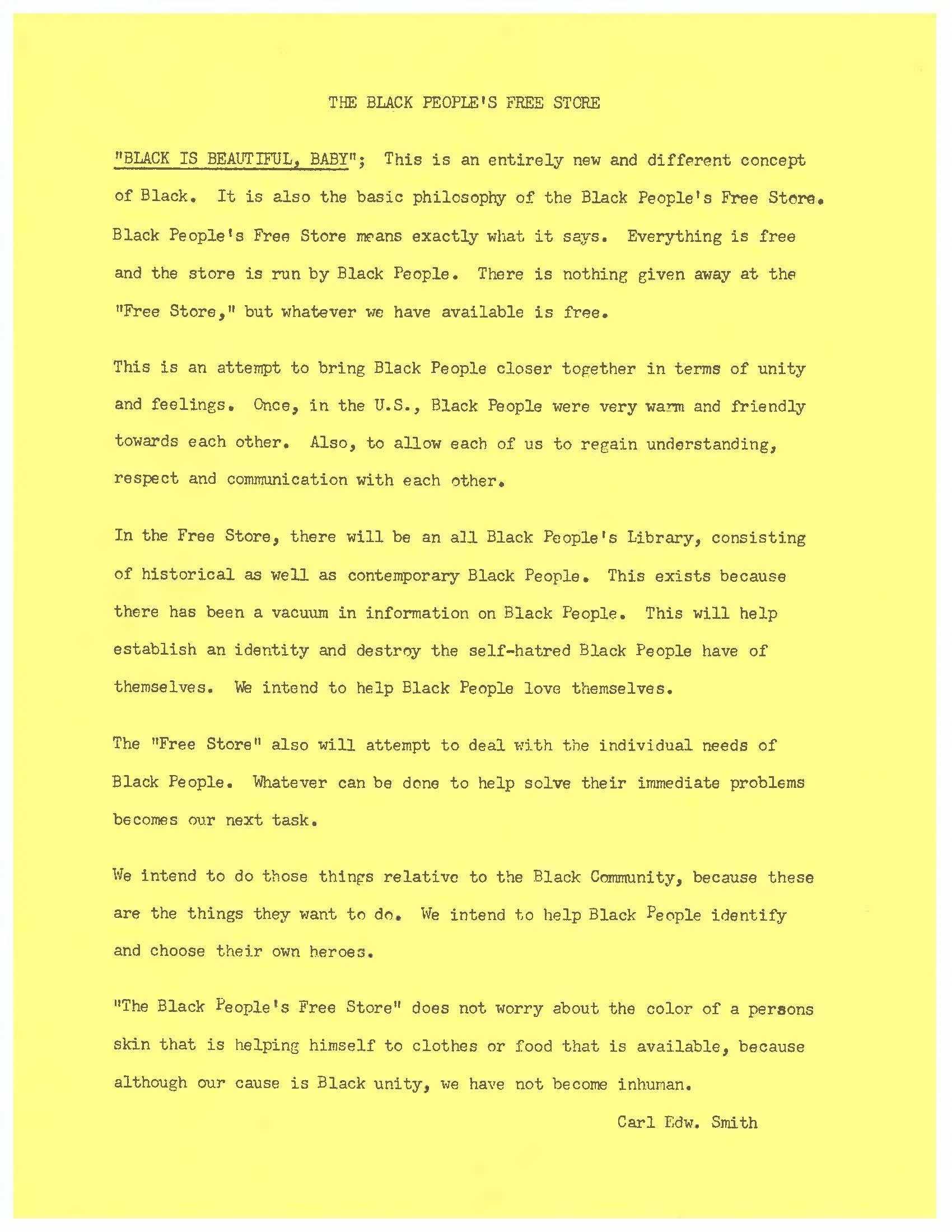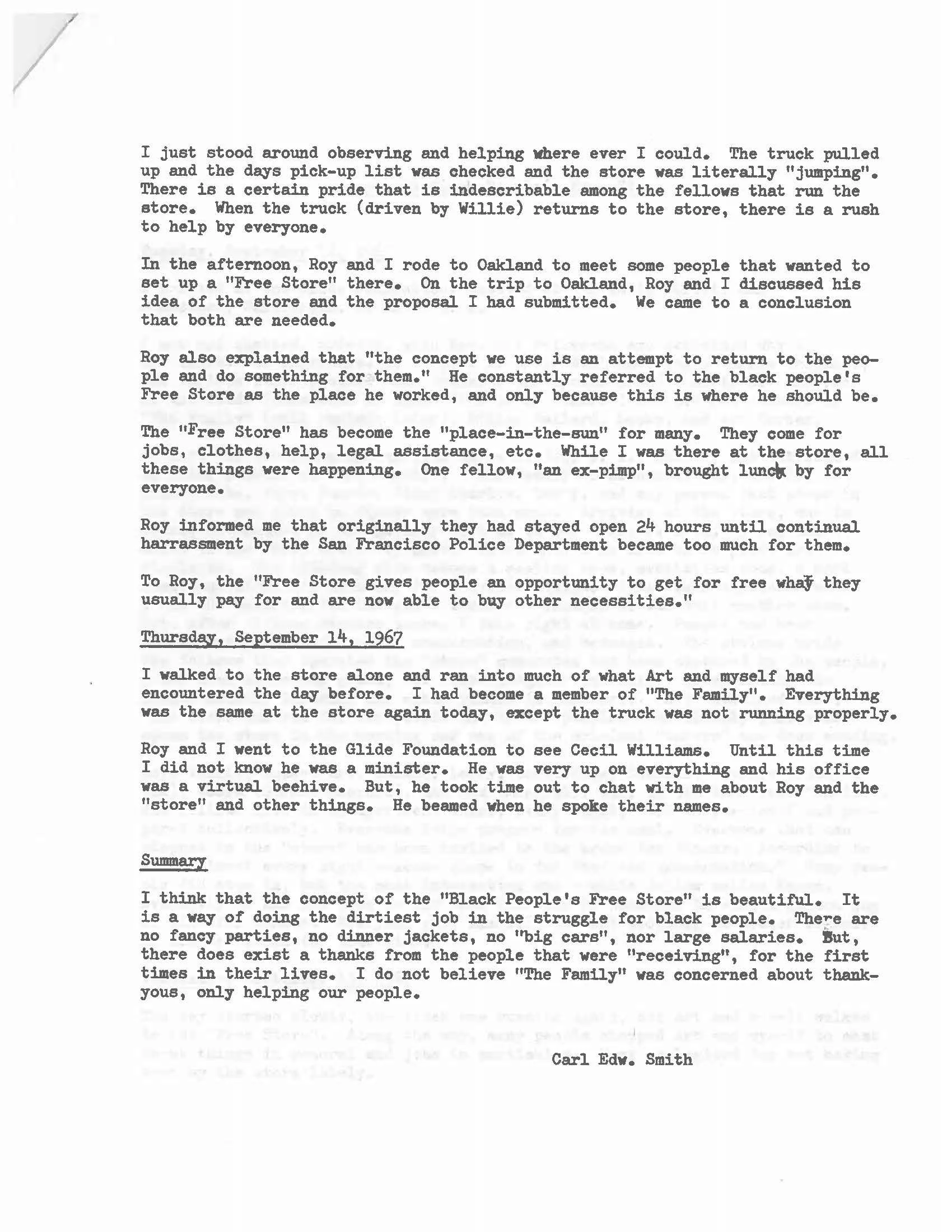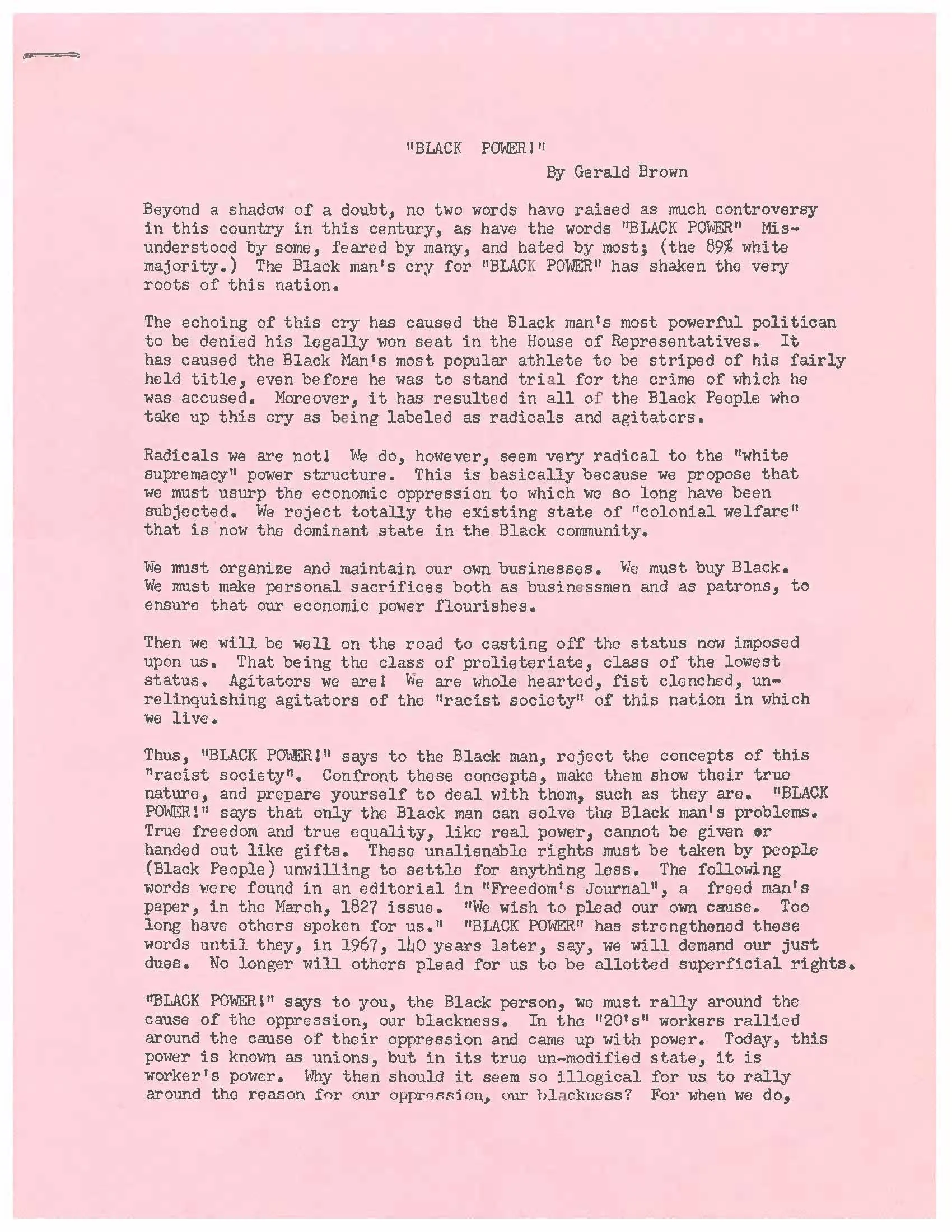Black People’s Free Story
The Black People’s Free Store was started by 5 activists from Grand Rapids: Bernard Ware, Carl Smith, Richard Martell Gilbert, Bernard Smith, and Gerald Brown. The mural a photo from the Grand Rapids African American Museum and Archive celebrates the history of activism and black history in Grand Rapids. Located at the corner of Jefferson and Delaware, the Black People’s Free Store provided resources for community members, published a community newspaper, and was a collective gathering place for neighbors and activists. While the Black People’s Free Store was only open from 1967-1968, for some, the impact was profound. Deeper Dive into The Black People's Free Store
The original concept of the “free store” started in the Haight-Ashbury district of San Francisco, and a second location quickly appeared in Grand Rapids after Carl Smith returned to Michigan. A funding request was submitted to the Dyer Ives Foundation and included the following: “The free store will attempt to deal with the individual needs of black people. Whatever can be done to solve their immediate problems becomes our next task.” While all 5 Free Store founders went on to impact Grand Rapids History, Carl Smith’s impact is documented in the book “City Within a City.” “It was the awakening. It was the awakening for the reality what was happening in the world, how systems worked, how colonization worked, and the ways to fight against colonialism.” Shared historian Taalib El Amin, a fellow South High alumnus, Taalib was a few years younger than the founders of the Black People’s Free Store. Taalib tributes much of his accomplishments and direction in life to his time spent learning under the leadership of Carl Smith, immersed in the literature and teachings provided through the Black People’s Free Store. Within those walls, he was first introduced to content written by Africans, dove into content about colonial struggles and activism. He reflects on his experiences: “Always know your facts before you open your mouth. And that’s one of the first things I learned. Can you research, do your homework and then speak the truth? And that was sort of a thing, it created a cadre of young warrior scholars back in the late sixties who went on to teach younger people beyond this. We spoke against the closing [of South High] though, battling the school board. ” When Taalib was asked about what he might want people to know the Black People’s Free Store, he remarked, “it was the awakening… And for the first time, it formed us so we could stand up and speak truth to power.” Learn More: Learn more about black activism in Grand Rapids by reading “City within a City” by historian Todd E Robinson.

















